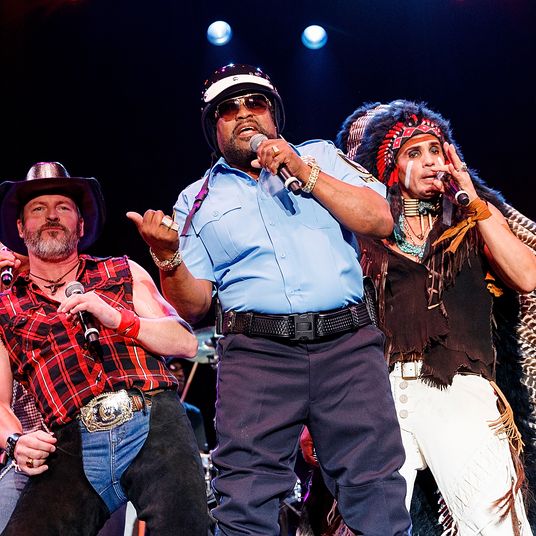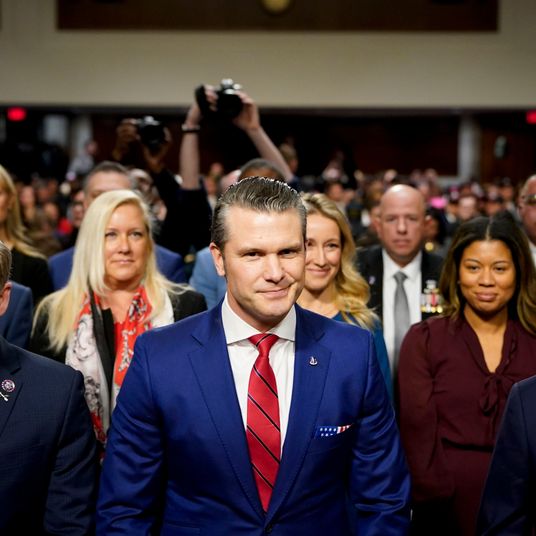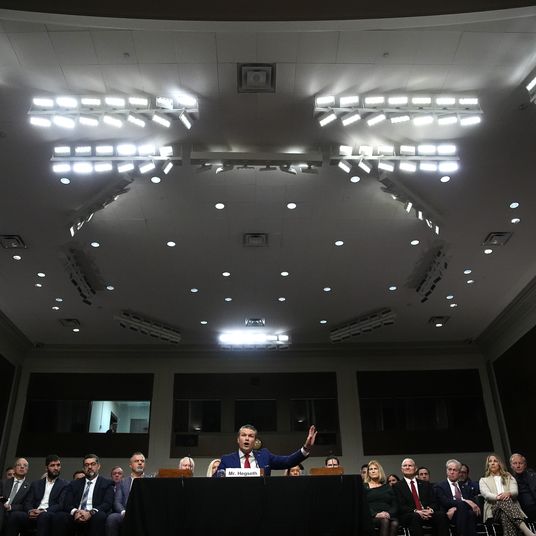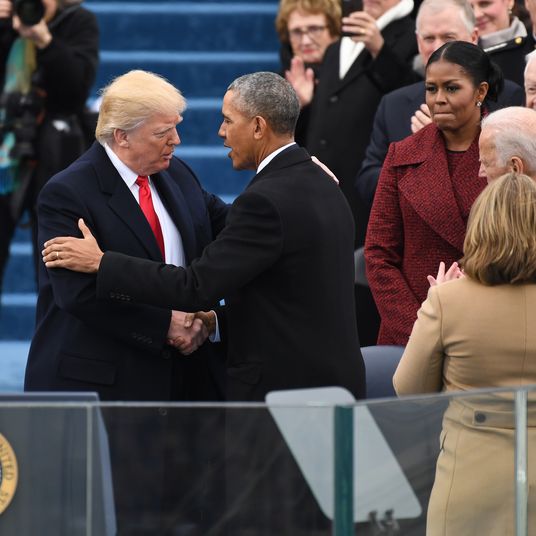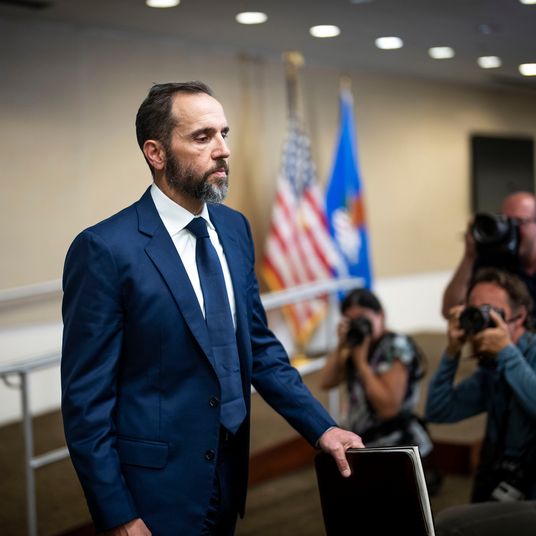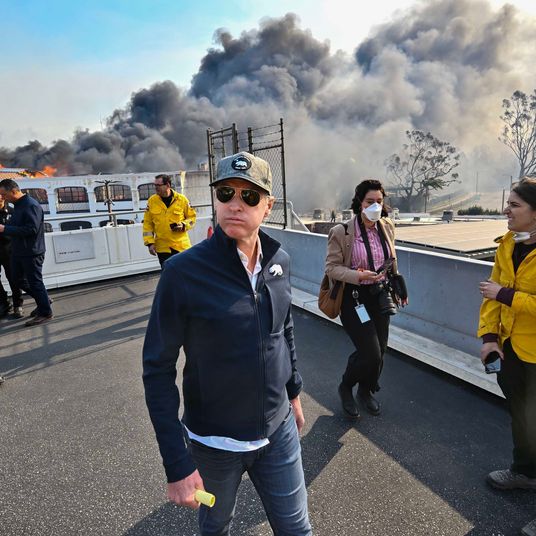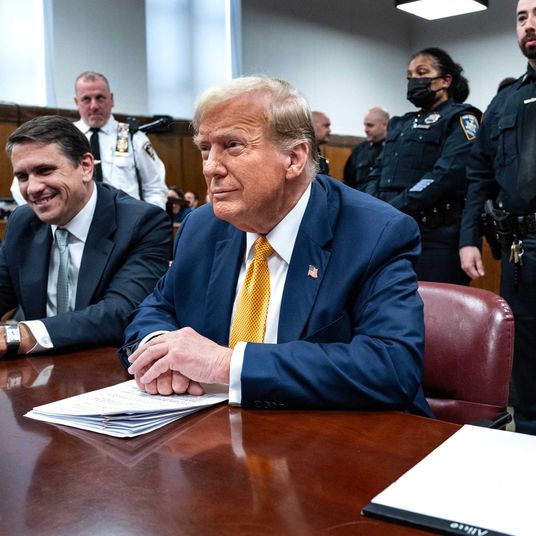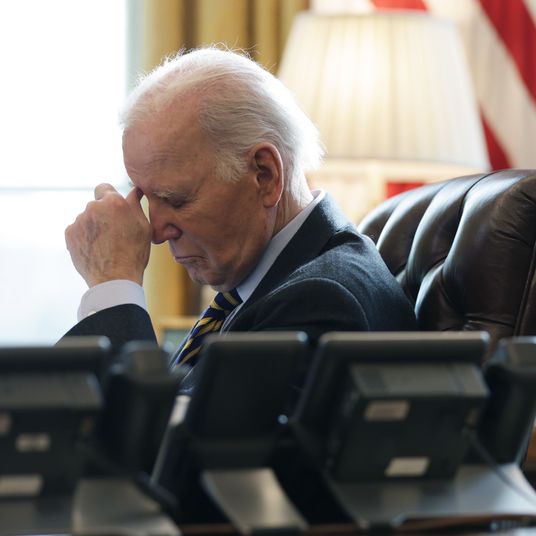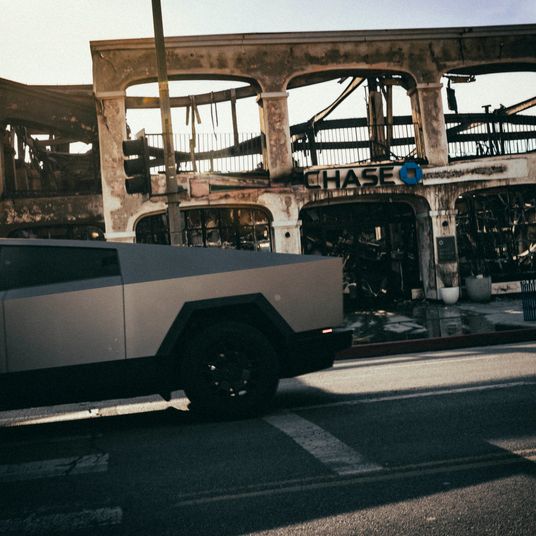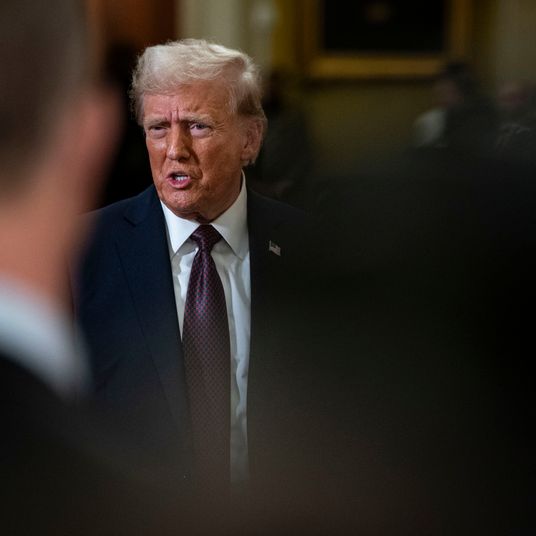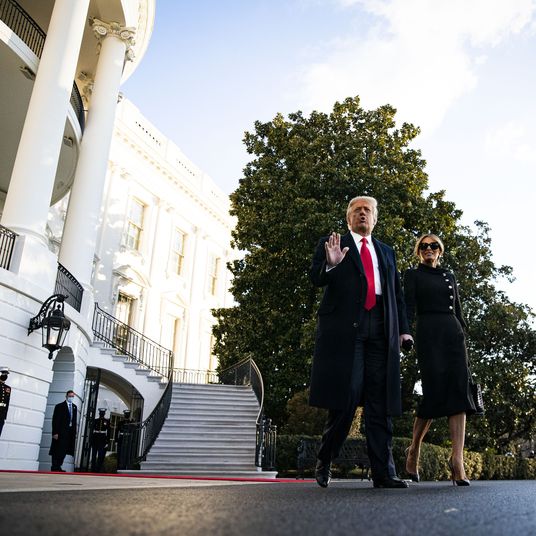
Photo: Getty Images
This past Sunday afternoon, Rudy Giuliani, his presidential bid squarely on the line, his political future hanging by a thread, rolled up in his campaign bus outside Paisano’s Gourmet Pizza in Port Saint Lucie, Florida. Hizzoner had been quoted in that morning’s USA Today saying, “The rumors of my demise are premature” — a statement that called its veracity into question by its very utterance. Now, Giuliani stood before a crowd that might have just barely broken into triple digits (if you were rounding up) and delivered what had become of his stump speech. He talked about fighting Islamic terrorism, cutting taxes, and keeping Hillary Clinton from taking control of health care. Across a stream behind the restaurant, a bunch of Ron Paul supporters began chanting, “Rudy is a cross-dresser!” Giuliani was unfazed. “We have to have goals, bold goals, big goals,” he proclaimed. He mentioned that a woman up front had named her cat after him. “It’s better-looking than me,” Rudy said. “That’s one good-looking cat.” Then Giuliani brought his talk to a merciful conclusion — eight minutes and nine seconds after it commenced.
Though it wouldn’t be official until yesterday, when Florida handed a momentous victory to John McCain and consigned Giuliani to third place in the Republican primary there, the thought that Ed Koch would voice on the occasion was already galloping through my head: “The Beast is dead.”
Now, as recently as two weeks ago, I’ll admit, I was taking a different line. On the night of the Michigan primary, in fact, I claimed that you could contend that Giuliani was still the GOP front-runner, albeit by default. This assessment was willfully perverse, for sure, but the chaos then reigning in the Republican race made it mildly plausible. But, even so, I look back now and wonder what the hell I was smoking (and where I can get some more).
However obvious it should have been, the scale and swiftness of the collapse of the Giuliani campaign was simply breathtaking. It’s not just that Rudy held a double-digit lead over his rivals in countless national polls all throughout 2007. It’s how well he was doing (again, according to the polls) in so many critical early states. As recently as mid-November, please recall, Giuliani was in first place in Michigan and South Carolina and in second in New Hampshire behind Mitt Romney. He held a 20-point lead in California and a 30-point advantage in New York.
There are two broad prevailing theories about how Giuliani lost his mojo. The first revolves around the campaign that he and his team engineered. It contends that he was nuts to effectively blow off the first month of the nominating process and to place all his chips on Florida. That his operation was insular and parochial, dominated by his old City Hall inner circle. That its expenditures were out of control. As John Ellis asks at RealClearPolitics, “Where did all of Giuliani’s money go? He raised, as I understand it, roughly $45 million. He competed in one primary. He did not spend $45 million in Florida … How much were his consultants paid? The ones who dreamed up the ‘don’t-compete-and-win’ strategy? How much (in percentage terms) went to private aviation?”
The second theory revolves around Giuliani’s inherent weaknesses as a candidate and his deep-seated vulnerabilities. The conventional wisdom in the political class that Rudy’s pro-choice, pro-gun-control, pro-gay-rights record would catch up to him: Once the GOP electorate saw past his 9/11-derived celebrity and fully grasped these many apostasies, he would be toast. And that this is precisely what occurred starting at some point this fall — along with a dawning awareness setting in regarding the surreal, slightly seedy, circus that his personal life and relationships (Judy, Bernie) have always been.
Both of these theories have some truth to them. But the problems they delineate might have been overcome through various strategic/tactical maneuvers. (Mark Halperin offers some coulda-shoulda suggestions over at the Page.) The deeper issue with Giuliani’s candidacy, though, was that it offered no coherent or compelling rationale for its existence. The notion that he could do for America what he did for New York City was always going to be a tough sell; the presidency is not a mayoralty writ national. Nor was Rudy’s post-9/11 performance ever going to be enough to carry him to the White House, for whatever you think of it on the merits, it was all about the past — and presidential campaigns are, at least nominally, about the future.
In his concession speech, Giuliani said he was “proud” he had run “a campaign of ideas.” Really? Can anybody name one? If he’d actually come up with a few, he might have stood a chance. But he didn’t — thus, he’s gone.
Well, not totally gone. At some point today, Giuliani is expected to endorse McCain, and this could actually mean quite a lot. For the Arizona senator, who now stands as the undisputed Republican front-runner, closing the deal on Super-Duper Tuesday depends on his kicking ass on the coasts: in California, New York, New Jersey, and Connecticut. And in these places, Rudy not only still has substantial support but organizational infrastructure that he can flip over to McCain. The question is what the payback might be. The obvious possibility is a position in a putative McCain administration — say, attorney general. The thought of it is terrifying, no doubt. But at least we can comfort ourselves with the certainty that the Beast will never occupy the Oval. —John Heilemann
For a complete guide to presidential candidates Hillary Clinton and Barack Obama — from First Love to Most Embarrassing Gaffe — read the 2008 Electopedia.





